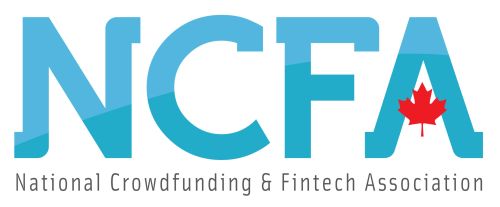GenAI | May 28, 2024

 Image: Freepik/rawpixel.com
Image: Freepik/rawpixel.comKey GenAI Human Rights Risks That Fintech Companies Need To Mitigate
As generative AI (GenAI) technologies are increasingly being integrated into fintech companies to create unrivalled opportunities for efficiency and innovation, fintech founders need to develop responsibly and respect the most crucial human rights. B-Tech, a project of the UN Human Rights Office of the High Commissioner has published an informative paper linking these risks to the Universal Declaration of Human Rights (UDHR) in a recent report titled, “Taxonomy of Human Rights Risks Connected to Generative AI“. Such risks include threats to privacy, further discrimination and bias, job displacement that leads to economic instability, and an infringement on freedom of expression and access to true information. Below are some key fintech related risks. Let’s dig in…
1. Privacy and Data Protection
“No one shall be subjected to arbitrary interference with his privacy, family, home or correspondence, nor to attacks upon his honour and reputation. Everyone has the right to the protection of the law against such interference or attacks.” UDHR Article 12
Financial technology companies are processing reams of sensitive personal data. GenAI technology enhances the data analytics, but at the same time, it risks serious threats to privacy. The greatest fears are around the deepfake abuse, unauthorized data scraping, and intrusions into the privacy of personal data.
2. Prejudice and Bias
“All are equal before the law and are entitled without any discrimination to equal protection of the law.” UDHR Article 7
GenAI systems can further highlight, replicate, and amplify training data bias, leading to adverse practices in credit scoring, loan approval, customer service, among others.
3. Right to Work and Economic Stability
“Everyone has the right to work, to free choice of employment, to just and favourable conditions of work and to protection against unemployment.” UDHR Article 23(1)
Potential GenAl applications in fintech may automate even repeatable jobs, thus leading to relocation of employment opportunities. This affects the economic stability and right of gainful living.
- Automation of customer service and compliance positions could see CAI’s Draft AI Framework for Human Rights
- A fake piece of financial news produced by AI could fuel market manipulation and investor confidence loss.
- Overreliance on AI for information can lead to a failure to tap multiple, diverse, and reliable sources of information.
What Could Happen If There’s a Breach?
A violation of any of these human rights can lead to various forms of recourse:
- Individuals can seek redress under data protection regulations, for example, the General Data Protection Regulation (GDPR) in Europe. This regulation calls for strict privacy protections and tends to impose severely high penalties for non-compliance.
- A breach involving discrimination or bias may trigger anti-discrimination laws, which prohibit unfair treatment on the basis of race, gender, ethnicity, and other protected characteristics.
- A violation of the right to work and economic stability, employees can claim based on employment and labor laws that protect against unfair dismissals or unsafe working environments.
- Financial regulators, such as the SEC in the US have the authority to investigate and litigate fintech businesses on breaches of the financial regulations that have a consumer protection and ethical behavior conduct element.
- Most countries have human rights commissions or kinds of bodies through which the complaints filed are taken to the extent of taking any necessary measures against firms abusing human rights.
See: The Battle for Privacy in the Digital Age
- Filing of class action lawsuits can lead companies to alter unethical practices.
- Another remedy is through individual law suits for recovery of damages due to an injury suffered because of a breach.
- Negative media or influencer publicity would publicly exposed the fintech firm and it would tarnish its reputation, which would press the firm to change its practices. Advocacy groups could also have campaigns for more awareness to make companies accountable.
- Shareholders and investors pressure fintech companies to maintain ethical practices and respect for human rights, leading corporations to shift their policies and practices.
As one can see from the long list above, violated individuals and organizations have a range of channels to seek redress and hold the fintech companies accountable for human rights violations.
How to Proactively Mitigate Human Rights Risks in Fintech
Several best practices that fintech companies and financial institutions might adopt to proactively mitigate these risks of human rights.
1. Implement Ethical AI Guidelines and Conduct Regular Audits
- Adopt and enforce policies that make ethics and human rights the key considerations in the development and application of AI.
- Establish internal review boards for the AI projects to ensure that the projects are within the ethical standards and human rights principles.
- Conduct regular audits of AI systems and algorithms to prevent data from having bias or that algorithms don’t further bias the data thus making unfair and discriminatory practices.
See: India Biometric Data Breach Highlights Cybersecurity Risks
- Use privacy impact assessments regularly to prevent data protection and privacy threats.
- Conduct AI operations, decision-making, and policies on the use of data in a transparent manner and publicly report on the use of AI including any measures to mitigate human rights-related risks.
2. Engage Stakeholders and Invest in Training
- Collaborate with human rights industry experts, organizations, and regulatory bodies to keep on top of best practices and evolving standards.
- Engage a diversity of stakeholders, inclusive of customers and affected communities, in the development and review of AI systems.
- Train all employees comprehensively in ethical AI practices, data privacy, and human rights.
3. Data Protection and Inclusive Innovation
- Develop strong management and data security measures to protect sensitive, personally identifiable information from potential breaches and unauthorized access.
- Put anonymization and encryption methods into place for personal data.
- Use diverse training data when developing AI solutions to reduce bias.
4. Establish Clear Recourse Mechanisms
- Stay informed of the laws and regulations in force. Adhere to industry standards and guidelines for the ethical use of AI and fintech operations.
- Prepare, develop, and implement plans to remediate any harm that has been caused by the AI system.
See: NIST Insights: GenAI Risk Management Framework
- Setup clear way to handle complaints and grievances related to the outcomes of the AI systems.
- All leaders in the company must commit to practising and ensuring an ethical corporate culture that encourages ethical behaviour, transparency, and respect of human rights.
Conclusion
Generative AI is a game-changer in fintech but it can amplify potential human rights risks. Companies big and small are advised to proactively mitigate core risks through privacy-first design, elimination of biases through culture, staff training, and ethical leadership and integrity around the processes and information within their organizations. Businesses need to embrace ethical guidelines, be subject to periodic audits, and include stakeholders in the process of building trust and responsibility in the use of AI for financial services.

 The National Crowdfunding & Fintech Association (NCFA Canada) is a financial innovation ecosystem that provides education, market intelligence, industry stewardship, networking and funding opportunities and services to thousands of community members and works closely with industry, government, partners and affiliates to create a vibrant and innovative fintech and funding industry in Canada. Decentralized and distributed, NCFA is engaged with global stakeholders and helps incubate projects and investment in fintech, alternative finance, crowdfunding, peer-to-peer finance, payments, digital assets and tokens, artificial intelligence, blockchain, cryptocurrency, regtech, and insurtech sectors. Join Canada’s Fintech & Funding Community today FREE! Or become a contributing member and get perks. For more information, please visit: www.ncfacanada.org
The National Crowdfunding & Fintech Association (NCFA Canada) is a financial innovation ecosystem that provides education, market intelligence, industry stewardship, networking and funding opportunities and services to thousands of community members and works closely with industry, government, partners and affiliates to create a vibrant and innovative fintech and funding industry in Canada. Decentralized and distributed, NCFA is engaged with global stakeholders and helps incubate projects and investment in fintech, alternative finance, crowdfunding, peer-to-peer finance, payments, digital assets and tokens, artificial intelligence, blockchain, cryptocurrency, regtech, and insurtech sectors. Join Canada’s Fintech & Funding Community today FREE! Or become a contributing member and get perks. For more information, please visit: www.ncfacanada.org Related Posts
- SEO Powered Content & PR Distribution. Get Amplified Today.
- PlatoData.Network Vertical Generative Ai. Empower Yourself. Access Here.
- PlatoAiStream. Web3 Intelligence. Knowledge Amplified. Access Here.
- PlatoESG. Carbon, CleanTech, Energy, Environment, Solar, Waste Management. Access Here.
- PlatoHealth. Biotech and Clinical Trials Intelligence. Access Here.
- Source: https://ncfacanada.org/generative-ai-and-major-human-rights-fintech-risks/



